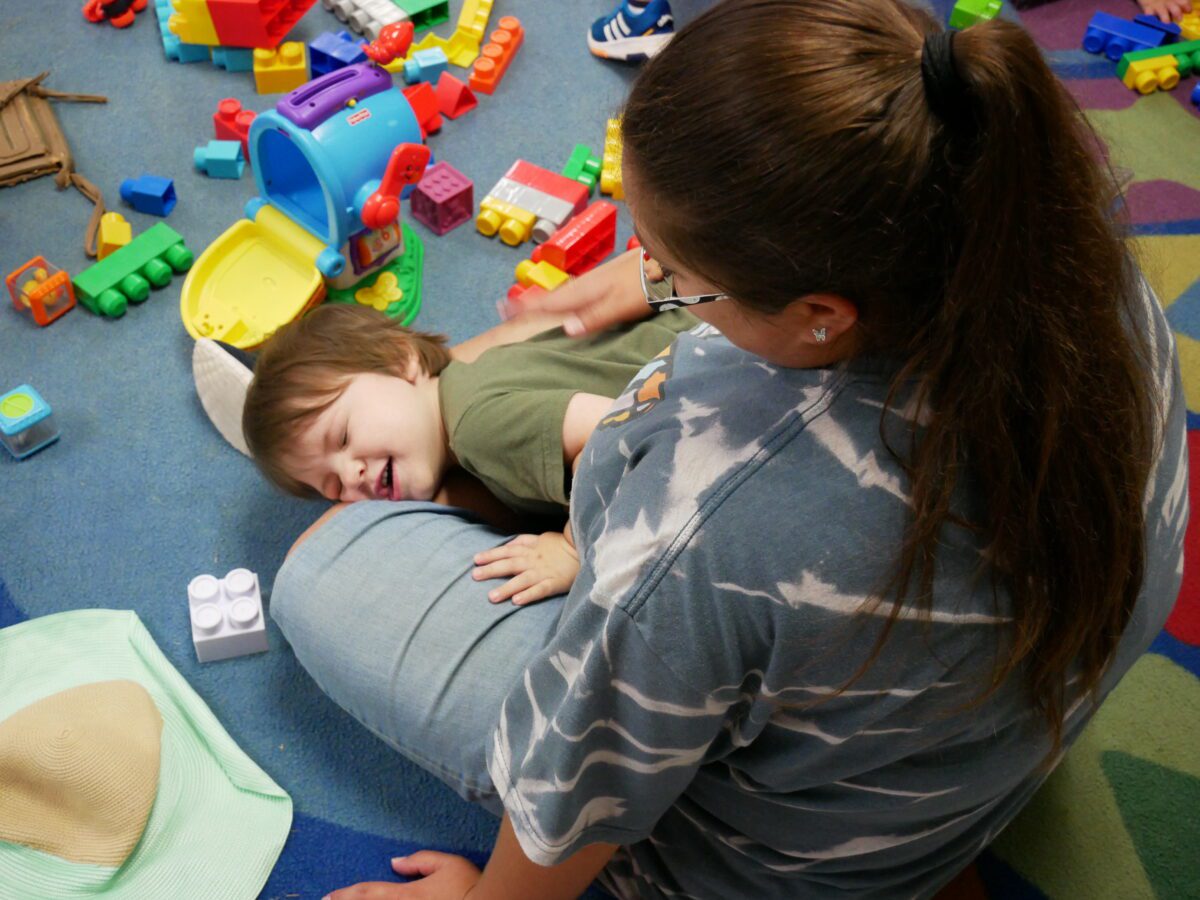
|
|
Behind the Story
This is the third piece from “School’s not out,” a series of stories from the road this summer about child care providers and the communities that rely on them in every season. In the absence of national and state investments, local leaders are stepping up to work toward solutions to the child care crisis. Meanwhile, federal relief funds are running out at the end of this year, leaving many programs with tough decisions and families with even fewer affordable child care options. Subscribe to Early Bird to follow along as EdNC documents this particularly fragile moment in early care and education. Go here for past stories in the series.
When Amy Blankenship saw black smoke outside her office window at Small Hands Learning Center in Stony Point on a sunny day in March 2021, she ran into the classroom for 2-year-olds.
“It was nap time, and all the blinds were shut,” said Blankenship, who had run the program for 25 years. “I came flying in there, and I opened up that blind. We were engulfed.”
Blankenship and her staff were able to safely evacuate all the children and employees out the back of the center and into a field.
“I sat in that field and just watched it burn,” she said.
At the time, the program was serving 60 children, most through subsidy vouchers. Forty of them were able to find slots in other child care centers. Of the other 20, Blankenship estimated that eight families lost their jobs because of a lack of available child care. Without options, a few others put their children in unlicensed care, she said, where there are no checks on safety or quality.
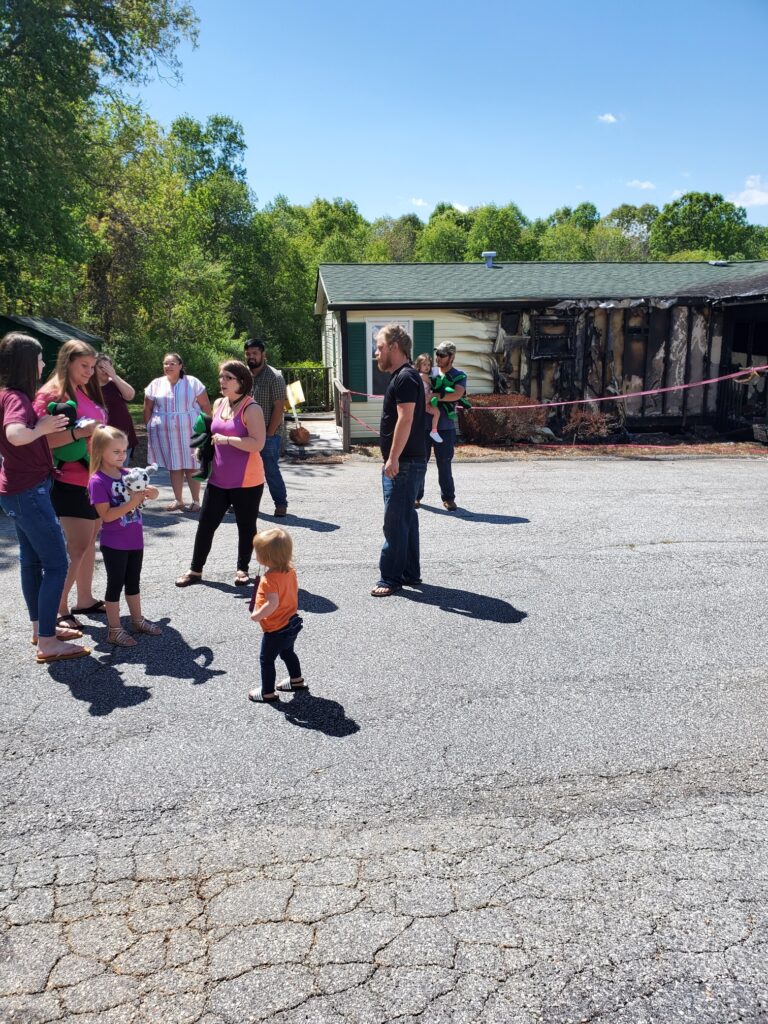
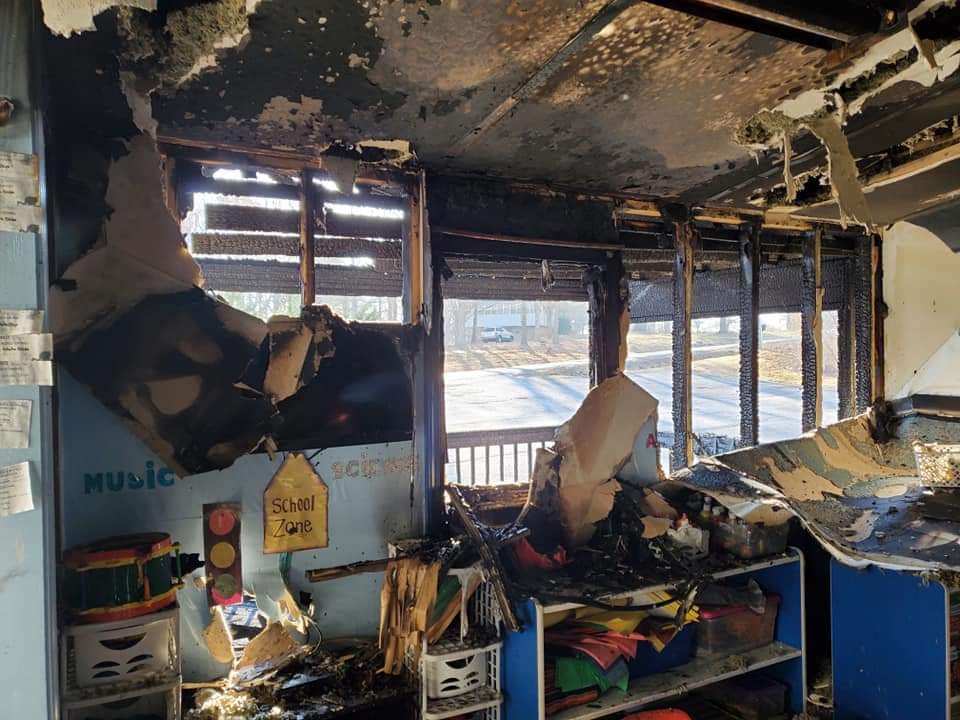
Alexander County, just north of I-40 between Asheville and Winston-Salem, has lost two of its larger child care providers, including Small Hands, since the pandemic. And as government pandemic relief funds, which are keeping many programs afloat, run out at the end of this year, big questions remain about how many more will close — and where those families and children will go.
“I’m not sure how long we could survive,” said Angela Adams, director of Calling Kids Child Development Center in Hiddenite, when asked what the fiscal cliff will mean for her program. Adams was one of several Alexander County providers who echoed this sentiment to EdNC.
Advocates have pushed for $300 million this legislative session to continue the stabilization funds through the next two years, but no state funds have showed up in budget proposals so far.
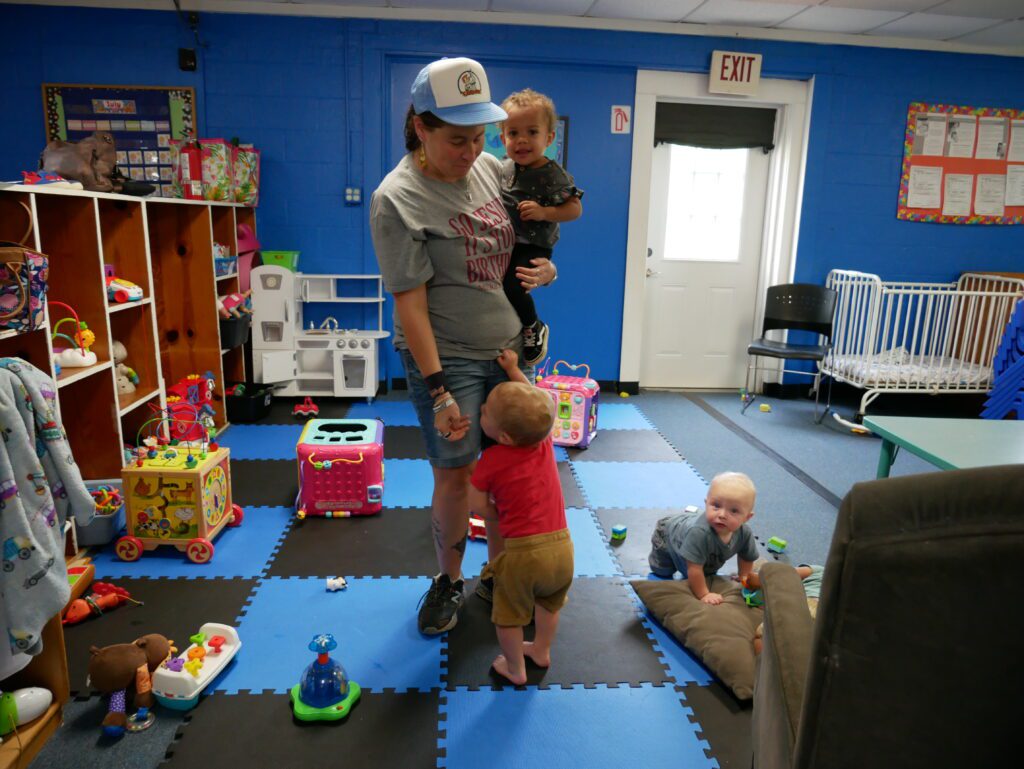
The stabilization funds are “the best thing that’s ever happened to child care,” said Bonnie Canter, who has worked in Alexander County child care for 51 years. For the past 23 years, Canter has run Millersville Child Development Center in Taylorsville.
“I will tell you this, also,” she said. “If they stop it, it will be the worst thing they’ve ever done for child care.”
Dawn Curtin, program director for child and family services with The Enola Group, which runs an Early Head Start center in the county, said intervention is needed.
“It’s a wake-up call,” Curtin said. “We really need to have people figure out what’s a sustainable plan that will meet the needs of the families who are really going to be the driving force of our economy.”
‘They’ll leave on their lunch break and not come back’
Kimberly Long, assistant director at New Beginnings Child Enrichment Center in Stony Point, said staffing is her biggest challenge. The day EdNC visited, two teachers had called out sick.
It was a long day during a long week during a long season for the center, Long said. There were days during the pandemic where teachers could not leave the classroom to grab their lunch or go to the bathroom.
“We had to depend on our cook to heat up our lunch and bring it to us — all these crazy things that in a normal job you don’t think of,” she said.
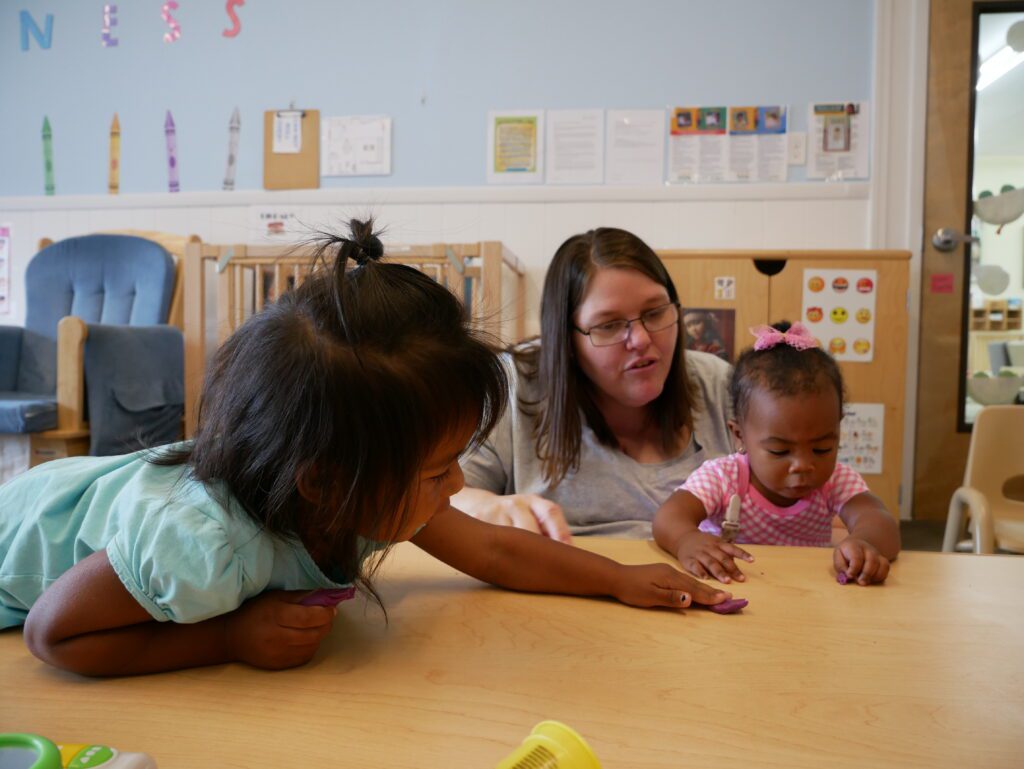
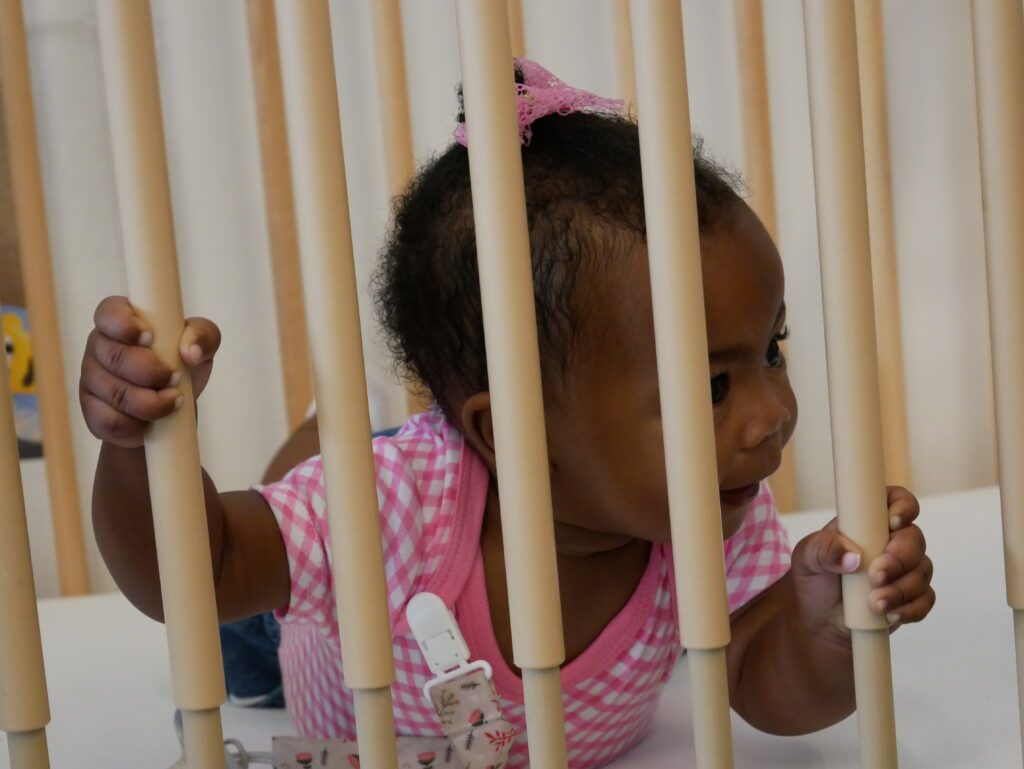
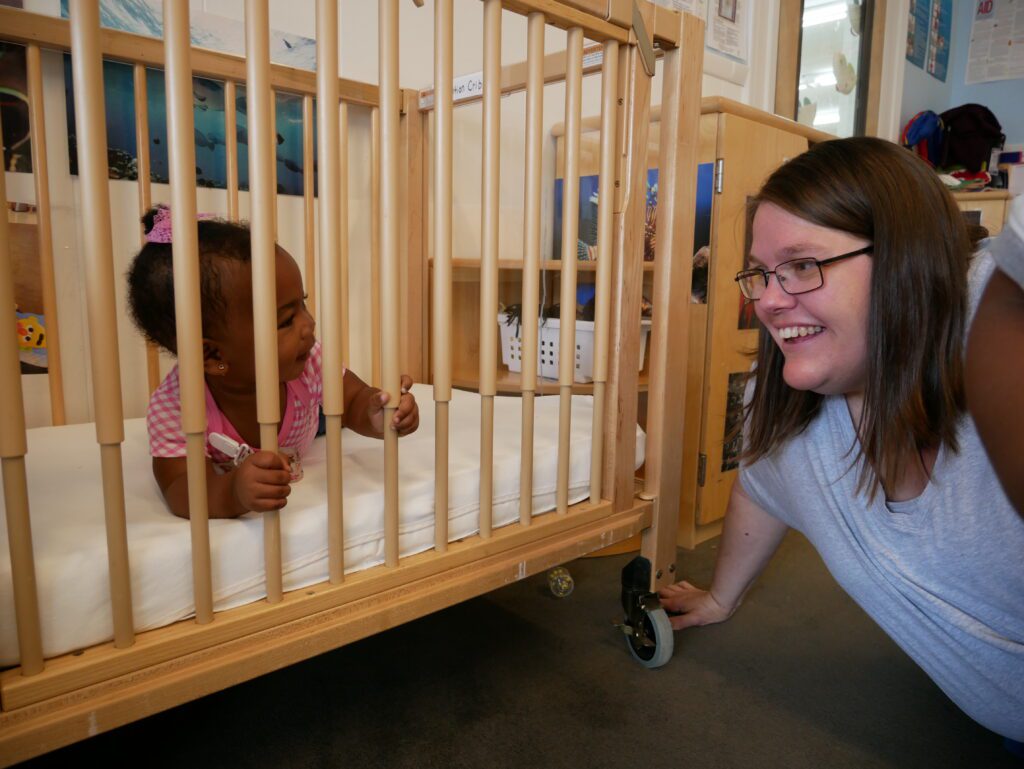
A year into COVID, Long remembers, local factories and fast food restaurants increased their wages to $20 an hour or so.
“Within like two months, the majority of the staff had quit, and we had to find new people and train them,” she said. “It was just really long days.”
Though the relief funds have helped the program raise teachers’ wages some, it’s still not enough to compete with less stressful jobs. That’s especially true, she said, since she’s noticed an uptick in the number of children with developmental delays.
“(In) every classroom, at least half the kids have a developmental delay that we’re having to work with, understand, move forward with — with the whole classroom and then with that child independently,” Long said. “Then these people come in, and they want to work here. And then they see this and they’re like, ‘This is too much for me. How do y’all do that?’ They’ll leave on their lunch break and not come back.”
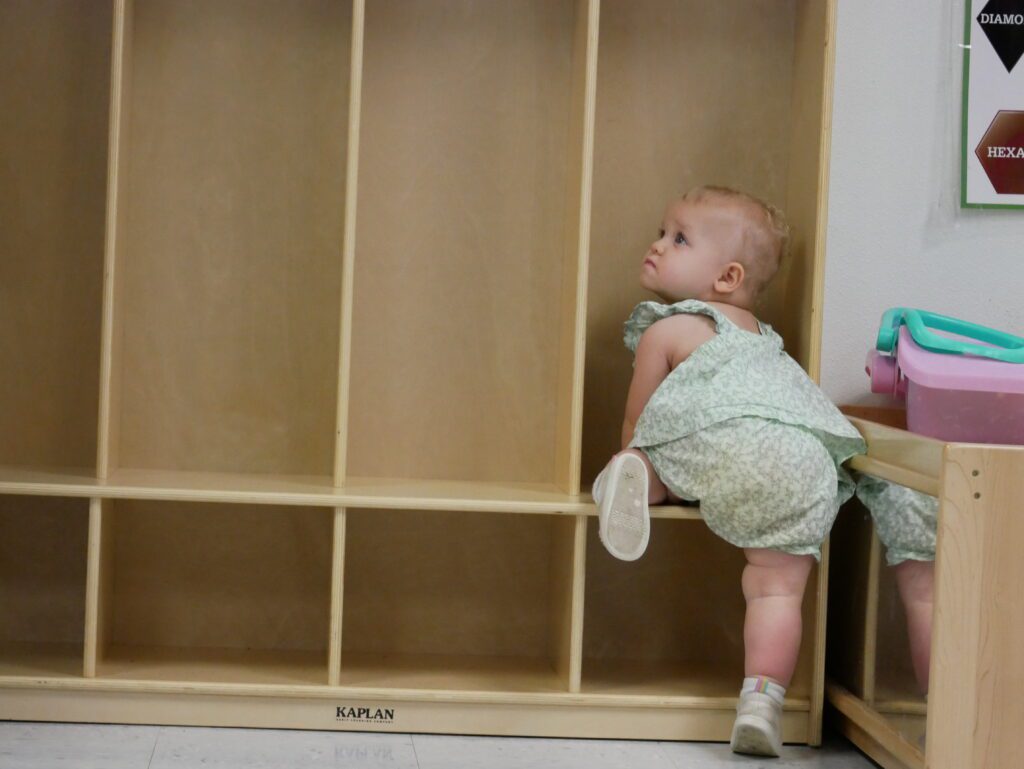
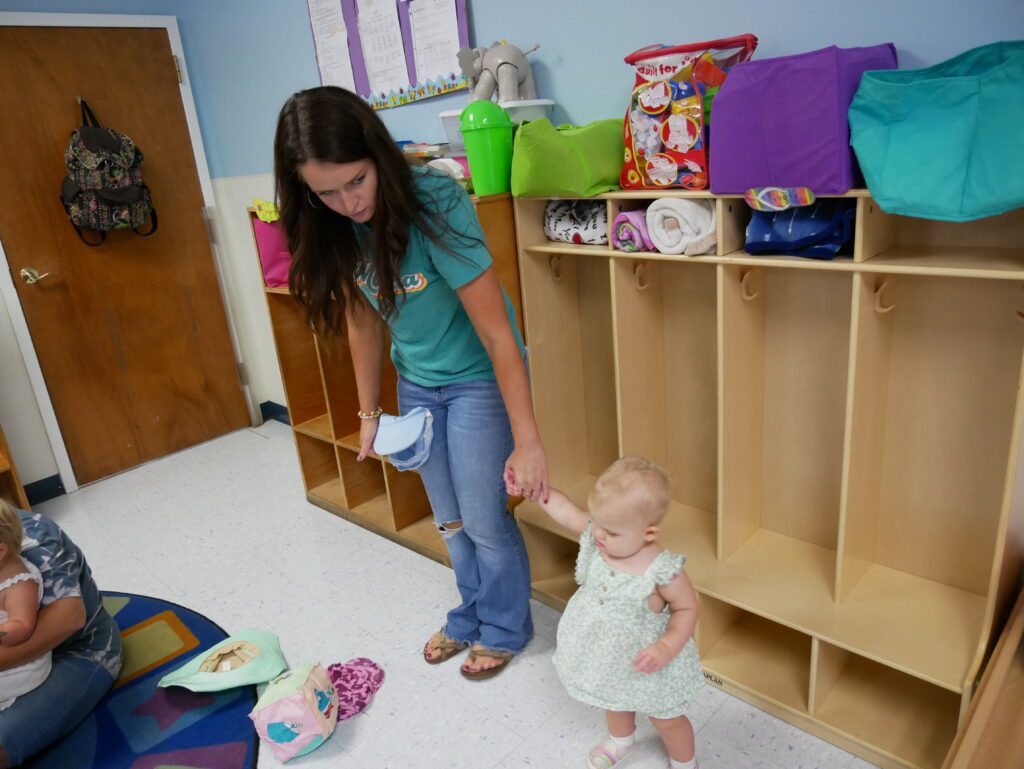
The program has had to close classrooms with little notice because of high turnover. As when Small Hands burned down, Long has seen these staffing challenges cost parents their jobs.
“It was one thing when it was COVID, but it’s another thing just doing it because you don’t have a teacher,” she said. “Jobs are not tolerating that. There’s not an excuse for it anymore. People are losing their jobs over it. They have lost their jobs over it.”
When EdNC asked Long to describe what she thinks child care will look like in five years without any public intervention or other financial support, Long said:
“Nonexistent. And if it is existed, I would not put my child in child care.”
Sacrifices to stay in the family business of child care
Back in Hiddenite, at the Calling Kids center, director Adams said she is tired. The last 16 years, since she opened the center, have been a rollercoaster, she said. For three of them, she did not give herself a paycheck.
These kinds of sacrifices are what has kept the program open, said Emily Leonhardt, the program’s assistant director and Adams’ daughter.
“If it was any other director, they wouldn’t have stayed and worked for no money,” Leonhardt said.
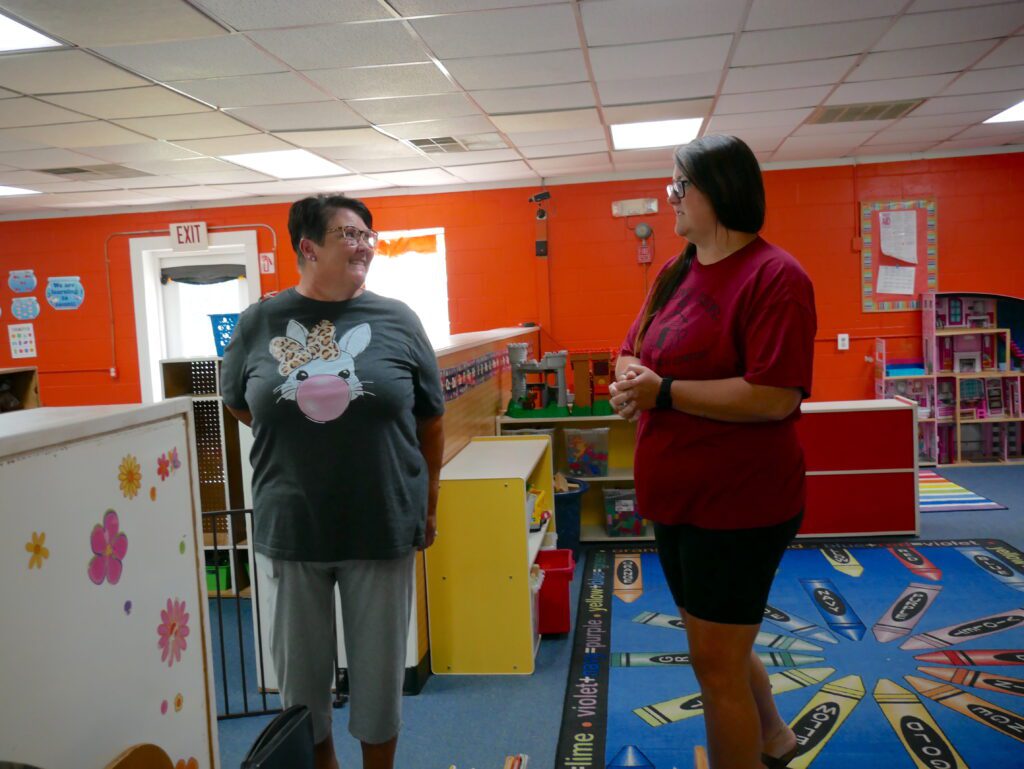
Adams’ other two daughters also work at the center, one as a longtime assistant teacher and the other, still in high school, as a part-time teacher over the summer. Adams’ father is the owner but does not get a paycheck. The infant room teacher, Sharlinda Hall, also has been with the program for all 16 years. Hall’s daughter just started working as her assistant teacher this year.
The program has outlasted periods of low enrollment, a snowstorm that caved in the center’s roof, and a pandemic. The family dynamic keeps them going, Leonhardt said.
“We’re OK with not making a ton of money because we know that like financially, it’s just not there to make,” she said. “But we have decided that to stay in the family business, we’re obviously going to have to go through those financial struggles.”
That dynamic includes the parents and children they serve, Leonhardt and Adams said. When the roof was caved in and the center had to close for three months, families waited until they opened again.
“We consider them part of our family,” Adams said. “And we’re there for other things in their lives. Whatever help they need, they know that can come and they can talk to us, and we’re gonna help them if there’s any way possible that we can.”
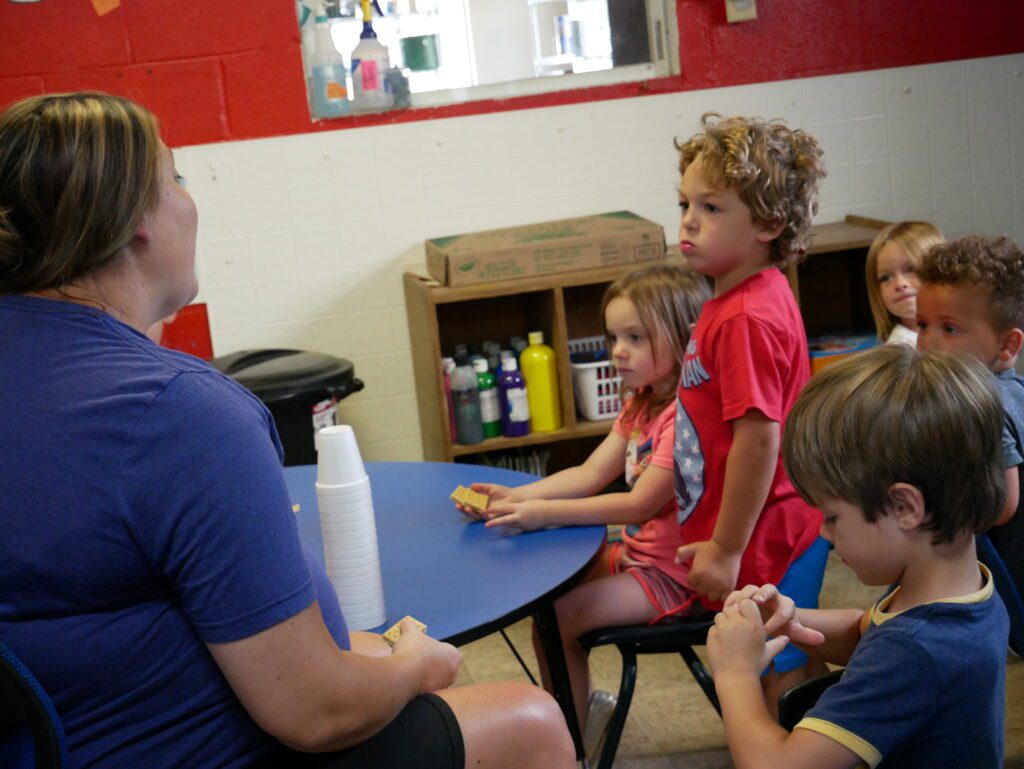
The relief funds helped them replace the roof, upgrade the facility, and increase their enrollment. But without continued funding, the future is uncertain, they said. In every moment of uncertainty, they ask the same questions.
“We’re just like, what will the parents do?” Leonhardt said. “There’s just nowhere for them to go. There are other child care facilities, but they don’t have open spots. That’s 65 children and 65 families that have jobs.”
Recommended reading




